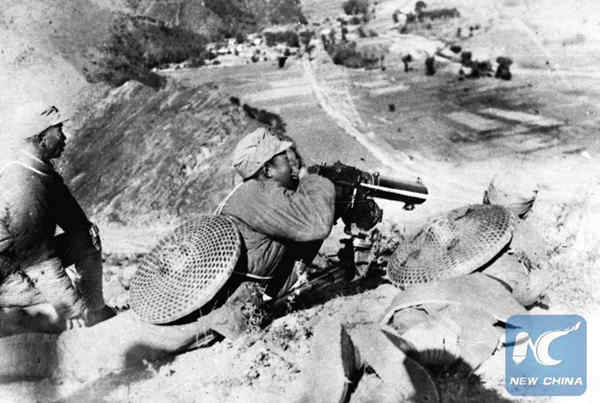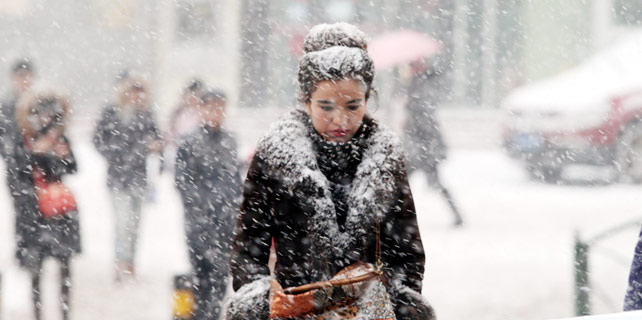Textbooks revised to underscore 14-year anti-Japanese war
 |
|
File photo [Photo/Xinhua] |
All textbooks and reference books used from primary school to universities have adopted the phrase "14-year Chinese People's War of Resistance Against Japanese Aggression," marking a revision to the current wording, as the new semester began on Feb 20, Beijing Youth Daily reported.
A document on the revision, issued by the Ministry of Education in the beginning of this year, mandates textbooks to fully reflect the crimes committed by Japanese troops in the war, underscoring the continuity of the 14 years of War of Resistance Against Japanese Aggression starting in 1931.
Textbooks currently use the phrase "Eight-year Chinese People's War of Resistance Against Japanese Aggression," which reflects the date of the beginning of Japan's full-scale invasion of China on July 7, 1937, to the date Japan declared its unconditional surrender on August 15, 1945.
The revision applies to textbooks of all disciplines from primary school to universities and vocational education, and of all courses both prescribed by the state and stipulated by local government.
According to People's Education Press, one of China's main textbook publishers, their textbooks of all disciplines, including Chinese, history, ideology and moral education, politics, and related reference books and exercise books, have completed the revision process.
China was the first nation to fight against fascist forces. On Sept 18, 1931, Japanese troops blew up a section of railway under its control near Shenyang and then accused Chinese troops of sabotage as a pretext for attack. They bombarded barracks near Shenyang the same evening, starting their invasion of Northeast China. This came to be known as the September 18 Incident.
The attacks intensified when Japan's full-scale invasion began after a crucial access point to Beijing, Lugou Bridge, also known as Marco Polo Bridge, was attacked by Japanese troops on July 7, 1937.
The September 18 Incident was the start of the Chinese people's resistance against Japanese invasion, ushering in a prelude of the world anti-Fascist war and delivering a profound impact on world history, said Wang Jianxue, vice-chairman of the China Association of Historians Studying Modern Chinese Historical Materials.
Although both sides of the Taiwan Straits traditionally use the phrase "Eight-year Chinese People's War of Resistance Against Japanese Aggression," the historical research results based on facts prove that the phrase "14-year Chinese People's War of Resistance Against Japanese Aggression" to be more accurate, said Xu Yong, expert of anti-Japanese war historiography and professor at History Department of Peking University.
When China marked the 70th anniversary of the victory in the Chinese People's War of Resistance against Japanese Aggression and the end of WWII on September 3, 2015, President Xi Jinping said in the opening of his speech, "Seventy years ago today, the Chinese people, having fought tenaciously for 14 years, won the great victory of their War of Resistance Against Japanese Aggression, marking the full victory of the World Anti-Fascist War. "
Earlier in July 2015, Xi urged researchers to study events from 1931 as well as those after 1937.
















